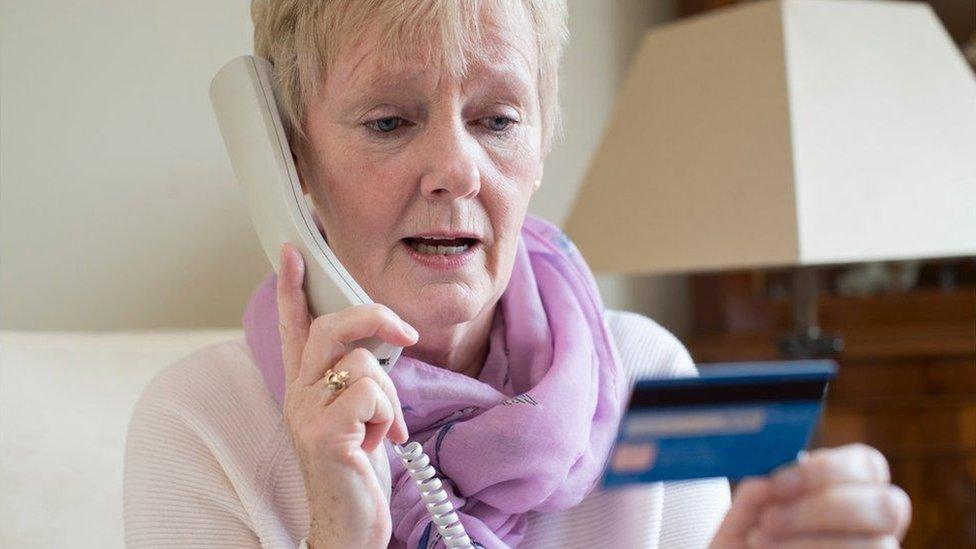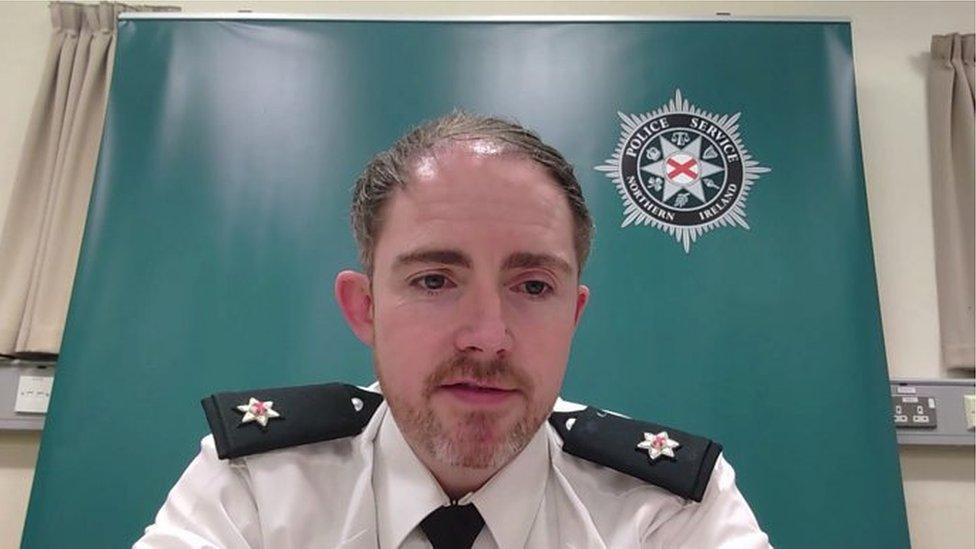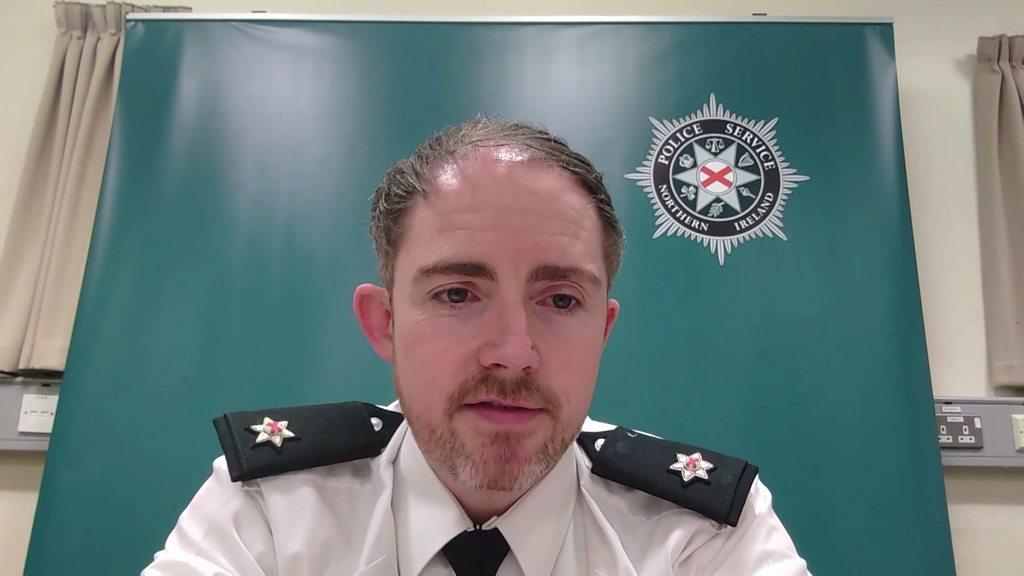Warning after NI scam victims lose £380k in July
- Published

Police have warned people to take precautions after it was reported £381,313 was lost to scammers in Northern Ireland in July.
The figure, published by the Consumer Council, accounted for 97 scams.
The council said it involved internet, telephone, postal and doorstep fraud.
PSNI Supt Gerard Pollock said cryptocurrency scams, social media messages and transferring money overseas were among the main current issues.
"If you're being asked in relation to purchases, in relation to investments, or indeed if it's involving a romance or someone you've met online, those should be really warning signs that this could be a scam and you want to be on your guard," the officer told BBC Radio Ulster's On Your Behalf programme on Saturday.
If people receive messages with shortened website links they should "go directly to a trusted website that you know or use an app that you have installed on your phone from your own bank or your service provider", he added.
The Consumer Council reported most of the victims in July were aged between 50 and 69.
It found £109,489 was lost in 68 online scams.

Supt Gerard Pollock advised people to check their credit file if they suspect they have been a victim of fraud
Close to £270,000 was lost in telephone scams and £2,508 was stolen in four doorstep incidents.
There were also three postal scams reported but no money was taken.
Supt Pollock said more than 120 people have been convicted in relation to frauds and scams in Northern Ireland in the last financial year.
'Total shock'
On Your Behalf also heard from a listener, Simon, who said he had been the victim of identity fraud.
He received a speeding notice for a Mercedes car in London in February 2022, however, it was for a car he did not own and in a city he had not visited for several years.
"It came as a total shock," he told the programme.
The victim said he was able to confirm through the PSNI that he was not the registered owner of the car but he later discovered that insurance for the vehicle had been taken out in his name.
The Metropolitan Police later said he was not expected to pay the fine and they would make further inquiries to find the person responsible.
Simon, who said he takes care with how he uses his personal data, said the ordeal had left him concerned about "black marks" being placed against his name for future insurance policies.
"It doesn't bear thinking about" the ramifications if the vehicle was involved in an accident, he said.
Supt Pollock said: "What Simon and people in his situation should do is then consider getting a copy of their credit file and check for any suspicious credit applications.
"So often insurance companies will do a soft credit search against an individual before they issue an insurance product or indeed get credit and that'll give an indication if there's someone trying to use their data."
The officer added if people lose documents or credit cards they should contact companies to "put them on notice" for any suspect transactions.
Related topics
- Published10 November 2021

- Published19 January 2022

- Published8 July 2022

- Published9 May 2022
